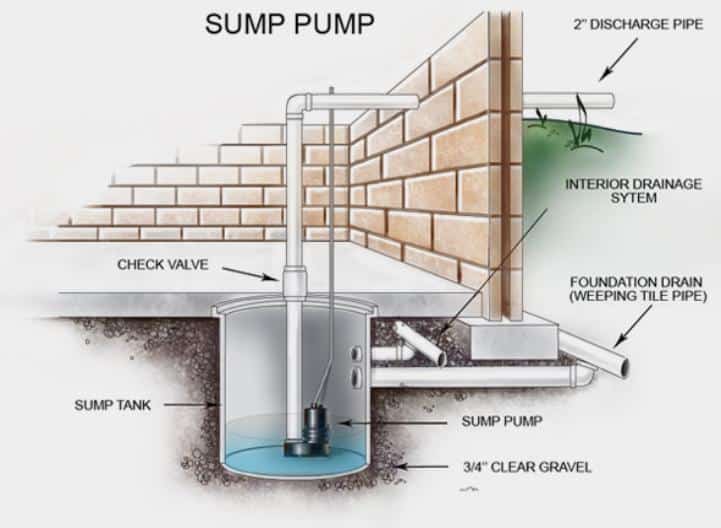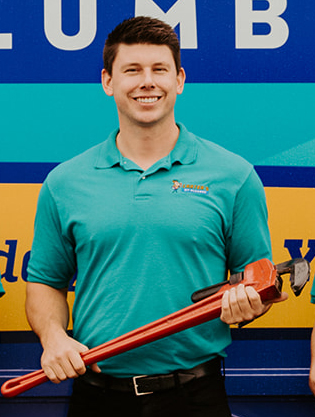Table of Contents
As a homeowner, one of the last things you want is a flooded basement. Basement flooding happens for any number of reasons, from severe rain to ruptured pipes, but thankfully there are several ways you can stave off disaster. For many homeowners, the best line of defense is a good sump pump.
Of course, simply installing a sump pump isn’t the end of it. You’ll also need to be attentive to your sump pump, ensuring it’s properly maintained and working the way it’s supposed to. And if you experience sump pump failure, it’s vital to call a professional plumber ASAP.
In addition to providing sump pump installation in Indianapolis, Carter’s My Plumber also has a wealth of expertise regarding sump pumps. We’re happy to help if you ever experience an issue, helping you avert any undue damage to your basement or foundation. In the meantime, consider some of the most common issues that sump pumps can experience.

What are the Most Common Issues with Sump Pumps?
These are some of the reasons for sump pump failure that we see most frequently in the Indianapolis area.
1) Your sump pump is overwhelmed.
The issue may be that your sump pump is getting hit with far too great a flood, including volumes of water beyond what it can bear. When it comes to keeping your basement floor nice and dry, it’s vital to have the right type of sump pump in place, which means not just high quality but also high capacity.
2) You have no water in the sump pit.
If you notice that there’s no water in the sump pit, it likely means one of two things. First, it might mean that your sump pump simply wasn’t installed properly. Two, it could mean that your pump has become disconnected from the discharge lines. Either way, you’ll want to enlist the expertise of a professional plumber. Our technicians are always ready to provide a solution should you ever find that your sump pit water level is too low.
3) You’ve got clogs in your sump pump or switches.
All too often, we enter homes that have sump pumps without lids. The lack of a lid means your sump pump will become clogged and dirty over time. Eventually, it will stop working altogether. To avoid this issue, we recommend having your sump pump sealed with an airtight lid. And if you do experience a clog in your drains or switches, talk to a sump pump installation and repair technician to determine what your options are.
4) The discharge pipe is clogged or frozen.
Your sump pump should have a discharge line where it expels any water that it collects. If that line becomes frozen or clogged, the entire system will cease to function the way it’s supposed to. Be sure you keep the space around the discharge line clear yet covered, ensuring nothing gets in the way or obstructs the flow of water.
5) You’ve lost power.
Naturally, your sump pump needs power in order for its motor to work properly. If your home experiences a power outage or a circuit breaker trips, and if you have a sump pump without battery backup, then your home could be very vulnerable to burst pipes or heavy rains. Having a backup sump pump can be wise, especially if your redundant backup pumps come with battery mode. A backup generator can also be powerful for averting basement floods.
6) Your sump pump is running all the time.
If you find that your sump pump is running all the time, whether it’s actually needed or not, there are a few common culprits. These include:
- You have faulty float switches.
- Your sump pump system is inappropriately sized.
- The check valve is broken or missing.
Regular maintenance is essential for identifying these issues, and for addressing problems before they get out of hand. Our team is ready to address any plumbing question, including inquiries about sump pump maintenance.
Frequently Asked Questions
What is a common defect in a sump pump?
The most common defect is going to be the switch failing.
What is the most common reason for sump pump failure?
The most common failure is going to be age or the pump was not sized properly and got overworked.
How do you diagnose a sump pump problem?
If there is power to the sump pump and it’s not pumping it’s most likely bad and needs to be replaced.
When should I worry about my sump pump?
We recommend having a sump pump stress test performed yearly to make sure your pump is working.
Can a sump pump be repaired?
A pump in a residential application usually needs to be replaced.
What is the life of a sump pump?
The typical lifespan of a sump pump is three to five years. After that, you’ll want to start looking into a new device to keep your basement dry.



